Interesting...Coeur d'Alene's bike course is anywhere from 6,600 ft of climbing to 8,800 ft of climbing (and just as much descending) from the different sources I've come up with (Motionbased Garmin reads...funny how the same course can come up with such varying Garmin data...). It would be nice if it's "only" 6.6k, but lets just use 8,000 ft of climbing as our assumption.
Now, lets assume that there is just as much descending as there is climbing. So, if that were true, then for 56 miles you are climbing and 56 you are descending. 56 miles, climbing 8,000 ft makes the average slope 2.7%. I've used this power calculator to figure out what kind of watts are
 required for different speeds and different weights. Check it out:
required for different speeds and different weights. Check it out:Now I don't have a power meter, so what does this mean in numbers I can understand? Well, I did the calculations with weight and power on flat roads, so that I could use my speedometer to get a gauge of my watts - after all, most of my training is on flat roads. So that's the last number on the chart. As this winter progresses, and I get my bike mileage in, I can gauge my expectations at CdA based on flatland speeds and the weight I lose.
Take the Florida Challenge as a real world example - at the bottom of the chart. 2700 feet of elevation in 58 miles where I weighed 250 lbs and I had an average speed of 18.1 mph - the average slope was 1.76%, to do it, required 212 watts on average. It's fairly accurate, 'cause I know I can ride fairly hard on a flat course at 20.5 mph for 60 miles.
So, 2 things have to happen - of course...first I need to be able to push more watts, which I'll be able to do, but to save some for a marathon, I think staying in that 210 watt range will be appropriate. In training, however, I'd like to get my century rides up there in the 21 mph average speed range. Second, again obviously, I need to lose weight. Look at the difference between a 170lb person on the hilly course and a 230lb person. Pushing the same watts, the 170lb'er gets done with the bike an HOUR earlier. That's huge. 230lbs would be my minimum weight goal...220lbs would be "OMG" outstanding.
Does all this math sound logical to you "Watt Hounds" out there?




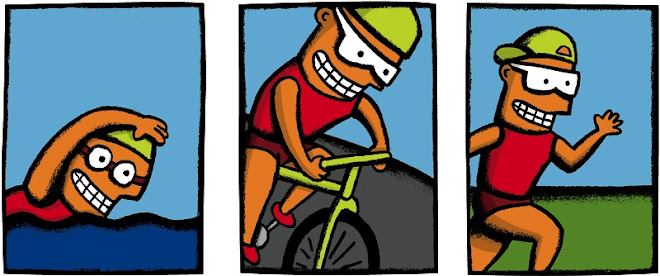

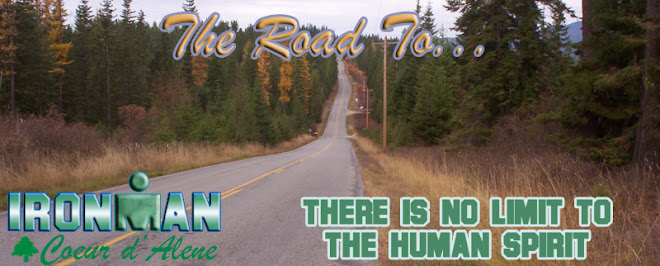


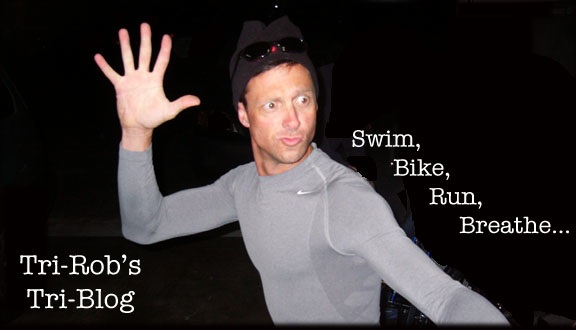










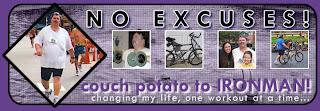


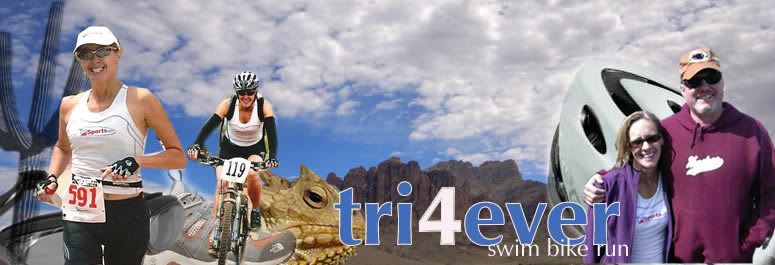


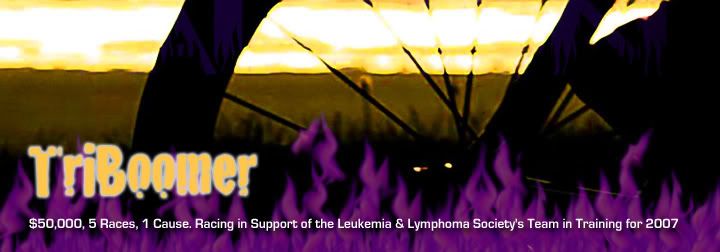













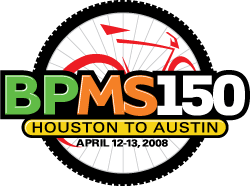











17 comments:
it's all about the bike!
which is a great lead in to...
following up with you and everyone on your offer for help!
the blog is up here:
http://bloggersagainstcancer.blogspot.com/
we are working through the name, and a graphic design... have a look!
Too...much...math. My head's gonna explode.
Wow - and I thought pool math sucked
ummm
do I have to train for this race cuz it's starting to look scary.
Yup...ALL about the bike for sure! For hilly bike rides it's all about power:weight! Us flatlanders must develop raw power!
With the IMCDA change in bike course this past year no surprise that you're getting multiple elevation figures.
21mph may turn out to be a stretch for your appropriate training velocity over a century... even at the end of your training. Best to train by power (relative to functional threshold) or heart rate and live with whatever speed that means!
Hey Dude -
You make the excel man proud but it's not about the bike. All triathlons are won on the run.
Run Bigun run!
Excel Man is right about the run. A poor run will crush you in an IM. It's only about the bike in that you need to get through it as quickly as you can while leaving yourself the strength to have a good run. A poor bike will devour minutes, a poor run will devour hours.
Also, what Brent said about the bike, work on dropping your average HR over a century and ride by HR, your speed will be whatever it is given the terrain, temps and wind conditions.
Just keep doing your intervals on the bike, do your best to build leg strength, weights, whatever climbing you can get at a low cadence and you will rock the bike at IMCdA. I already know the bike will be your baby.
Back to Excel Man…Run Bigun Run!
I trust you with your math. And now I know I just need to average 190 watts on the bike and all will be well - yeah right!
Uh...what Brent said. Yeah.
I ride PAINFULLY slow bike times in IMs. But I pass hundreds (literally) of people on the run b/c they rode too fast. It is about the bike AND the run. That combo is what you need to perfect. Someday I will!
Now that is some math.
Leave all the assessment of your current condition on the bike and run to me and Di. Just do whatever we say when you go by.
Now isn't that easier than all that math?
Good luck figuring this one out. Maybe Santa will bring you a powertap so you won't have to do so much math.
Hmmm...I'm impressed.
I think since IMFL is flat that means I don't have to do all that math. Atleast I hope so. I already know I have some weight to lose, so I think my math will be in the form of calories. Good luck!
I heart IronJenny!
The coaches at an IM training camp I attended last year said: Give up 15 minutes on the bike, gain 45 on the run. Much simpler math.
IM is still a triathlon, it's about swim, bike and run.
BTW. My abacus is still tring to confirm your data.
Post a Comment